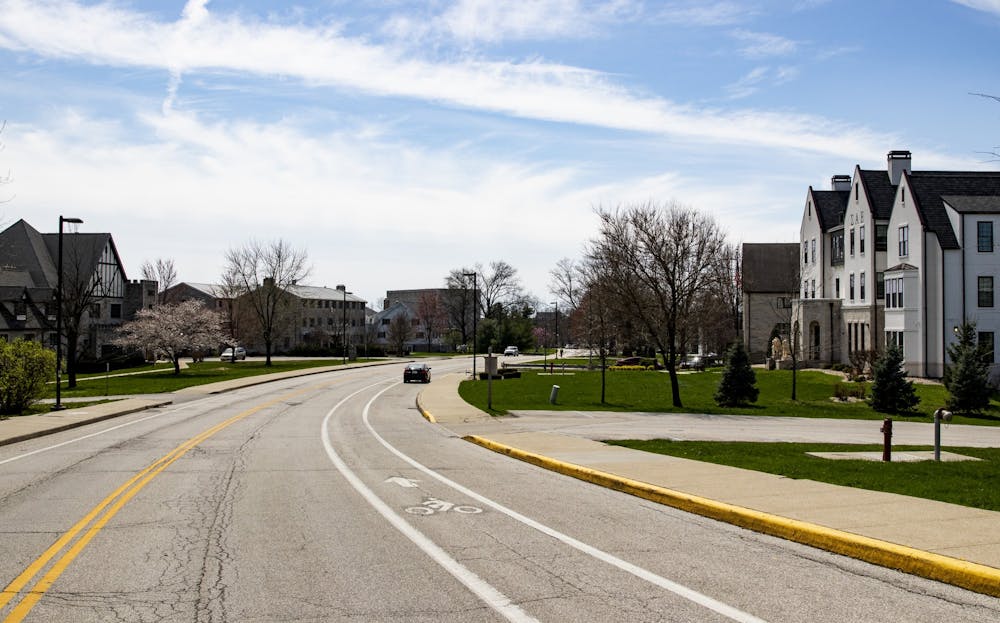Over 20 greek houses are now in quarantine, Leslie Fasone, the assistant dean for sorority and fraternity life, said Tuesday during a webinar.Only 19 greek houses are currently listed on IU’s website as of Tuesday night.
Fasone was part of a group of IU and Monroe County staff members that discussed the recent spike in COVID-19 test positivity rates and quarantine of greek houses in a Tuesday night webinar.
Dr. Aaron Carroll, IU's director of surveillance and mitigation for the COVID-19 pandemic, said greek houses will remain quarantined until 14 days have passed without a positive test in the house. So, if a member of the house tests positive during the quarantine, the 14 day period starts over.
Carroll also said it is important for greek house residents to remain distant from each other and stay in their rooms as much as possible to prevent the potential for spreading within the house.
In turn, since greek house residents live in such close proximity, contact tracing becomes pointless, Carroll said. Everyone in the house would be a close contact to whomever tested positive. Carroll also saidbeing in close contact is part of living in a greek house.
“We completely understand, no one is angry,” Carroll said. “A lot of you are close contact.”
Students who test positive are directed to leave the house and find an alternative site to isolate. For many students, that could mean going home or to hotels which are accommodating those in need of a place to isolate. Decisions on where students will be sent are made on a case-by-case basis, Carroll said.
“First, best option is to go home,” Penny Caudill, a Monroe County health administrator, said.
However, Carroll and the other committee members said they understand going home is not always an option. There is no blanket location for greek residents who test positive to isolate. Each chapter is in charge of that.
Greek house residents who test positive are not being sent to Ashton Residence Center because that space is reserved for students in the dorms.
Kathy Adams Riester, IU’s associate vice provost for student affairs, said there isn’t space in Ashton for greek house residents to isolate there, and this information was communicated to greek houses early in the summer.
IU will bring testing kits to students in quarantined greek houses. They will not have to go to mitigation testing sites.
In turn, some greek residents have spoken out on social media claiming they were being targeted by testing. Carroll said they are testing greek residents more, but it is purposeful.
“The reason is because we’ve detected a significantly higher positivity rate,” Carroll said of greek houses.
One attendee asked why entire dorms are not quarantining while greek houses are. Carroll said it is because it is easier to take students out of dorms and over to Ashton.
However, quarantining entire dorms is a possibility should positivity rates deem that necessary. Currently, that is not the case, Carroll said.
Carroll said in the webinar his goal of testing 15,000 students across all IU campuses every day. He’d like all students to be tested at least one to two times per week.




